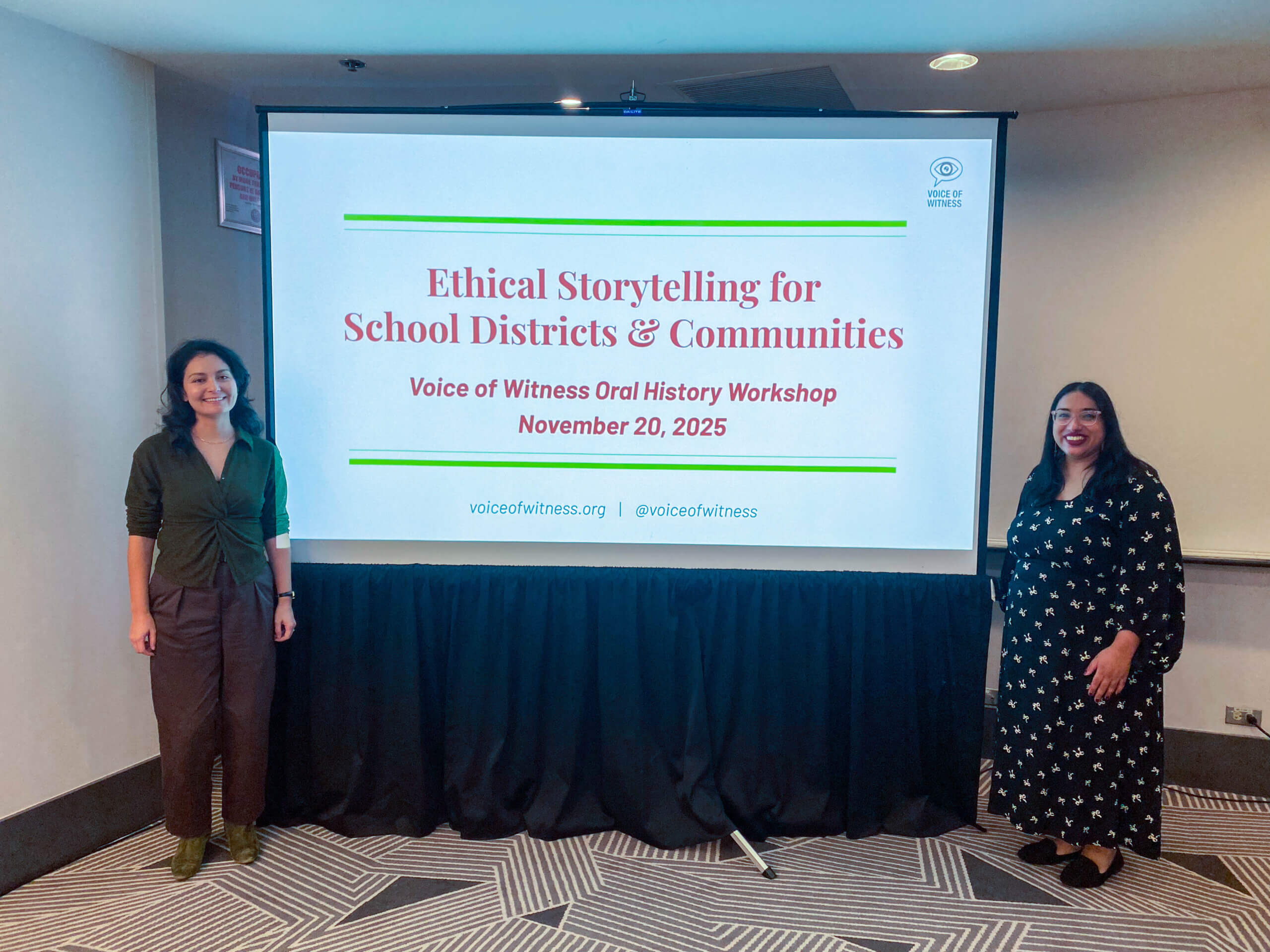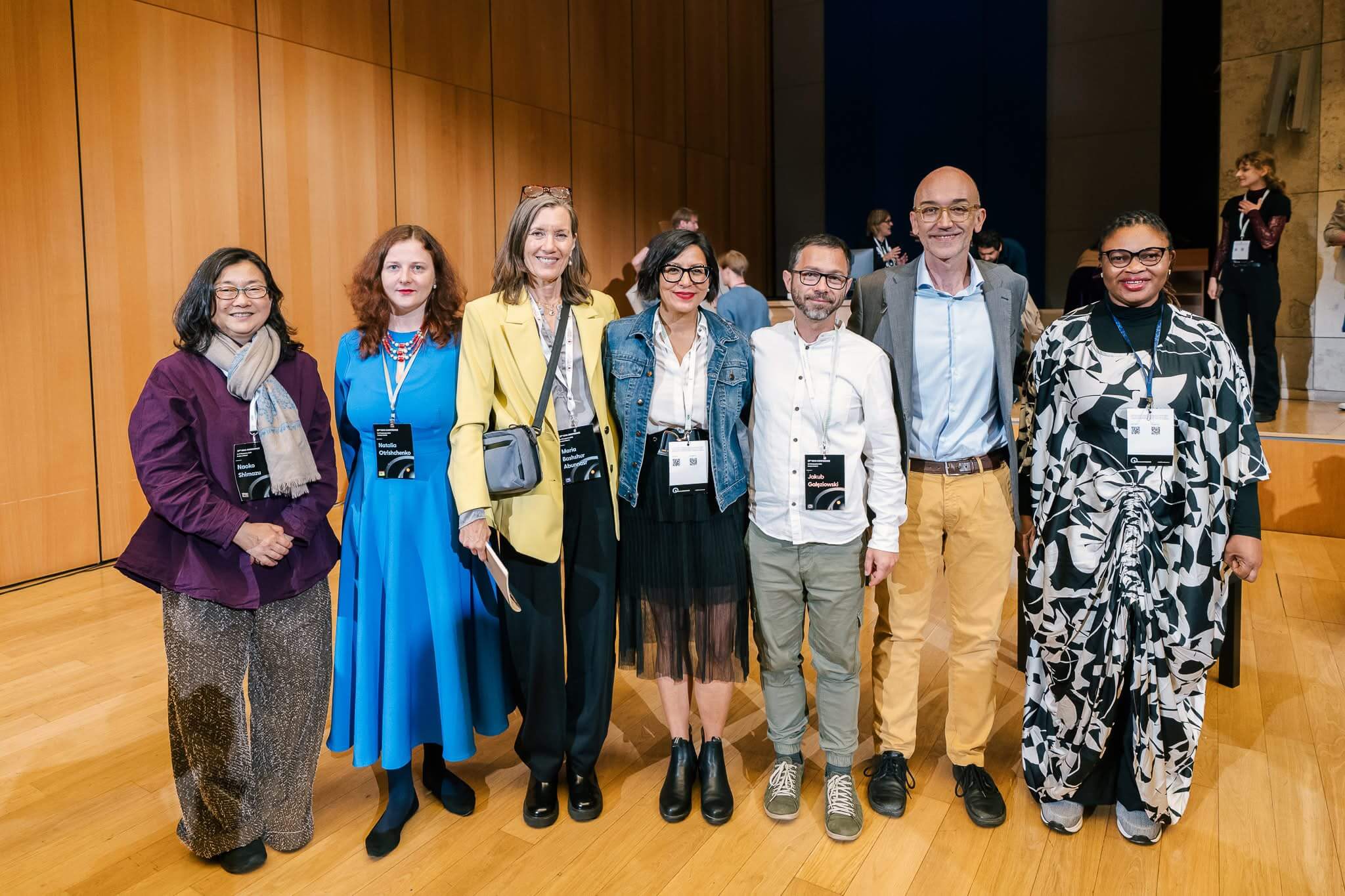A guest post by Praveena Fernes, VOW Education Advisory Board Member. Read Part I of her full piece here, and Part II here. 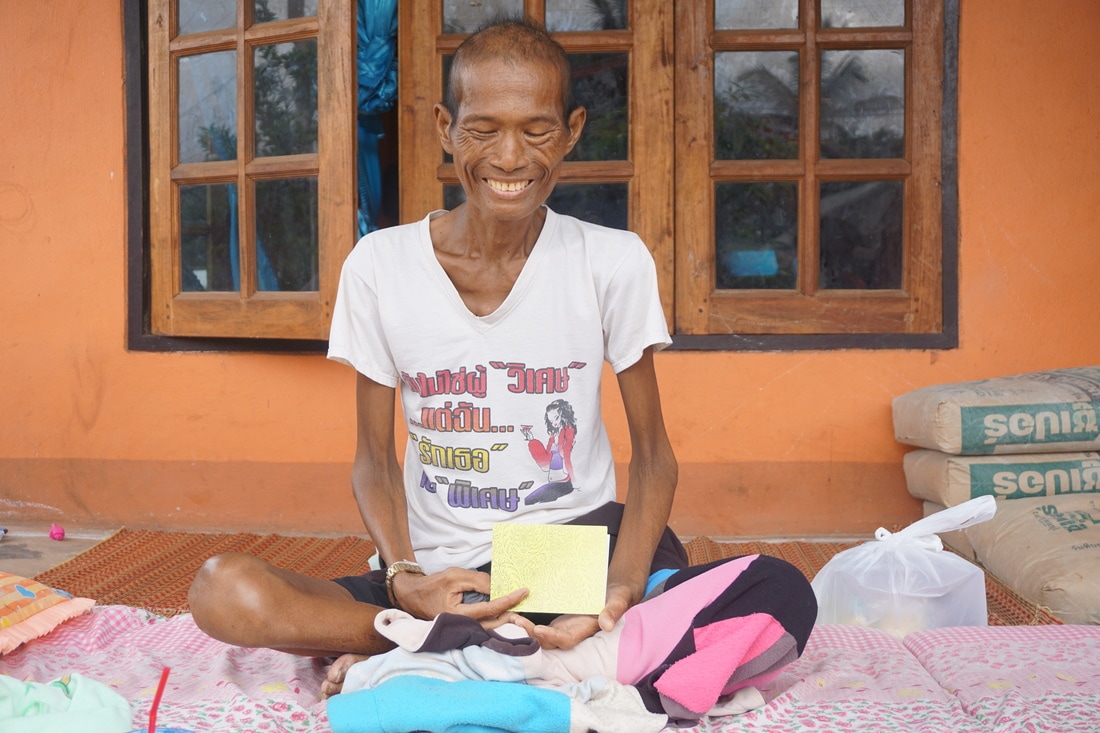 Last spring, I studied in rural Northeast Thailand and worked closely with human rights activists and healthcare providers to strengthen my understanding of sustainability and development. I met many villagers who have faced gross environmental and social injustices perpetrated by an oppressive mining industry, and lived with passionate activists who were leading a mining resistance movement in response to the devastating health and environmental impacts caused by a decade of irresponsible gold mining activity.
Last spring, I studied in rural Northeast Thailand and worked closely with human rights activists and healthcare providers to strengthen my understanding of sustainability and development. I met many villagers who have faced gross environmental and social injustices perpetrated by an oppressive mining industry, and lived with passionate activists who were leading a mining resistance movement in response to the devastating health and environmental impacts caused by a decade of irresponsible gold mining activity.
Though it was disturbing to learn about years of man-made trauma, it was powerful to meet resilient leaders and help share their stories through photojournalism for a local news source (Isaan Record). During my time there, I published a two-part story on a 36-year old sugar-cane farmer named Dieow who was dying from renal failure and falling through the cracks of Thailand’s Universal Health Care system.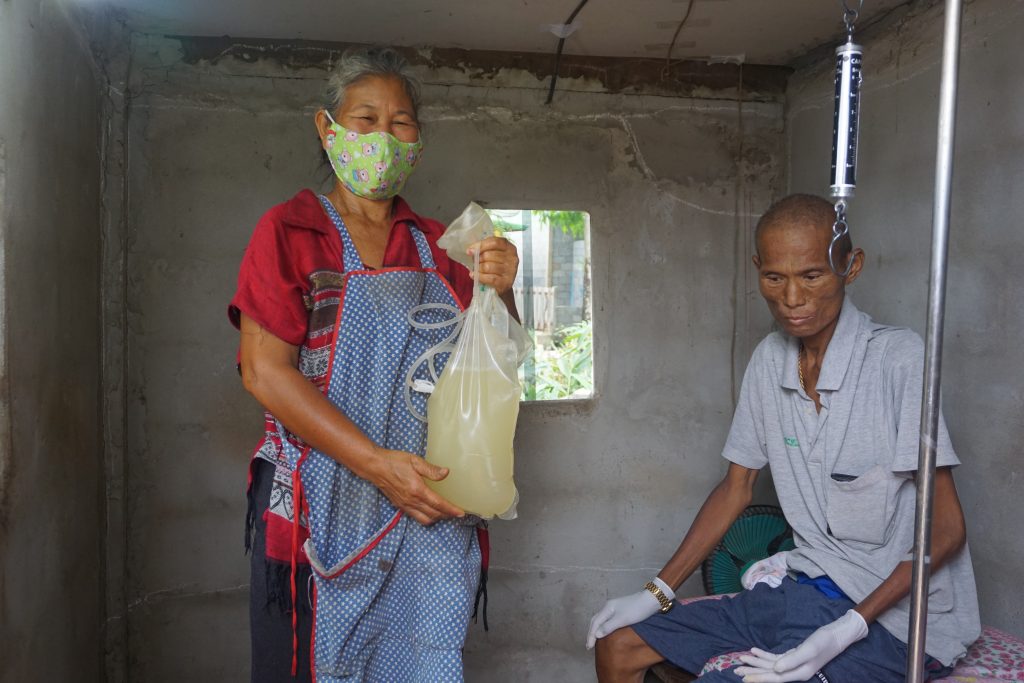 To tell this story, my co-editor Abbey and I followed a team of doctors making afternoon rounds to visit three patients in palliative care. Dieow was the second patient we met. His humble testimony and strength moved everyone in the room. Dieow’s credo of acceptance of his imminent death left me incredulous and filled with emotion. We asked Dieow if we could center our article around his narrative.It was exhilarating to dedicate my whole self to crafting something that felt so important. After doing the math, Abbey and I calculated that neither one of us has ever spent such concentrated time and effort on anything else before. The days blurred and our regimen of writing, while taxing, was inspiring. l would roll out of bed, wearing my shambolic spiked morning hair and grab my MacBook, slip on my birks and glasses, and meet Abbey at 7:00 am. We’d grab a quick breakfast—usually an amalgam of street food and 7/11 snacks from across the street—and break bread ($0.10 taro flavored roll with a forever shelf life) in the over air-conditioned small office that became our home. As we’d open our laptops to pull up the most recent google document, I would sigh to exhale any apprehension I had toward the upcoming hours of fussy and scrupulous editing.
To tell this story, my co-editor Abbey and I followed a team of doctors making afternoon rounds to visit three patients in palliative care. Dieow was the second patient we met. His humble testimony and strength moved everyone in the room. Dieow’s credo of acceptance of his imminent death left me incredulous and filled with emotion. We asked Dieow if we could center our article around his narrative.It was exhilarating to dedicate my whole self to crafting something that felt so important. After doing the math, Abbey and I calculated that neither one of us has ever spent such concentrated time and effort on anything else before. The days blurred and our regimen of writing, while taxing, was inspiring. l would roll out of bed, wearing my shambolic spiked morning hair and grab my MacBook, slip on my birks and glasses, and meet Abbey at 7:00 am. We’d grab a quick breakfast—usually an amalgam of street food and 7/11 snacks from across the street—and break bread ($0.10 taro flavored roll with a forever shelf life) in the over air-conditioned small office that became our home. As we’d open our laptops to pull up the most recent google document, I would sigh to exhale any apprehension I had toward the upcoming hours of fussy and scrupulous editing.
But all of these efforts felt minuscule in comparison to the grim reality behind our storytelling—a man destined to die. In our most recent meeting with Dieow, his doctor informed us that he only had a few weeks left to live.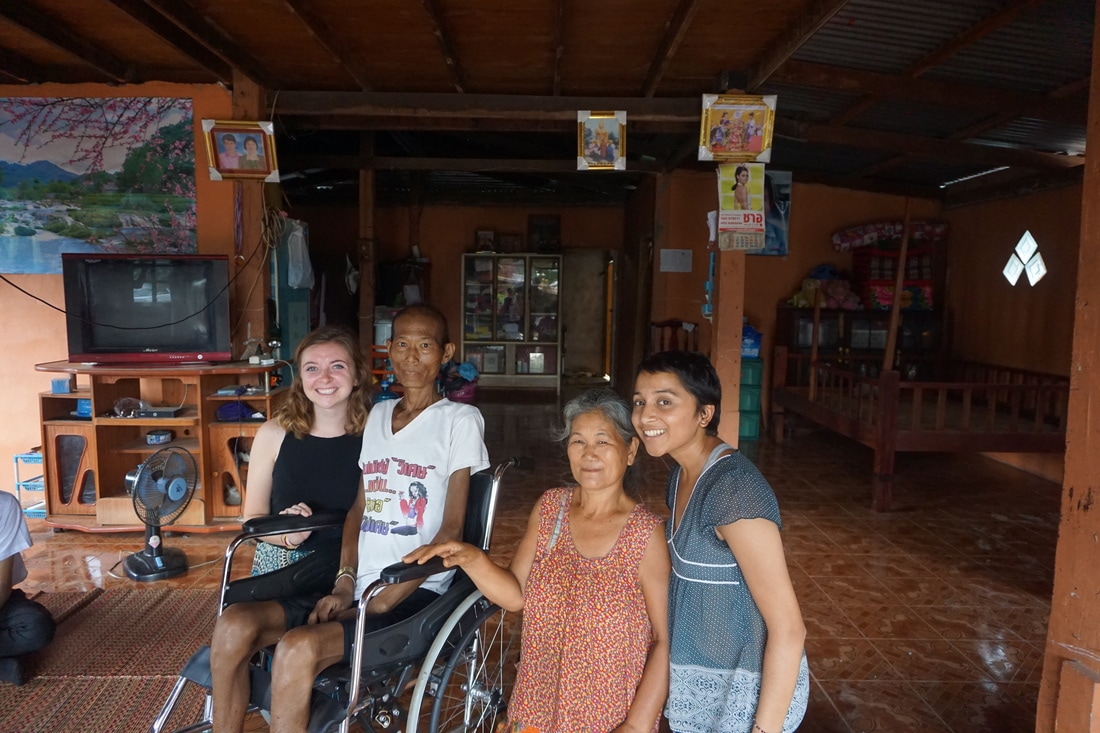 Storytelling and oral history are at the core of humanity—it’s what connects us, it builds empathy and cross-cultural understanding, and it’s a tool for survival. Without stories, humans would be aimless and apathetic—merely sacks of skin and bones. We spent hours writing to be sure that our piece embraced the integrity of Dieow’s voice, while also framing it in the larger public health issue of access to care.
Storytelling and oral history are at the core of humanity—it’s what connects us, it builds empathy and cross-cultural understanding, and it’s a tool for survival. Without stories, humans would be aimless and apathetic—merely sacks of skin and bones. We spent hours writing to be sure that our piece embraced the integrity of Dieow’s voice, while also framing it in the larger public health issue of access to care.
When we finished writing, we had to make a phone call we had been dreading. We waited in anticipation as the translator dialed, and with each ring I submerged slowly underwater. When the translator smiled to affirm that Dieow was the one who answered, we gasped for air and I felt the hot tears begin to form—he’s alive. Elated and exhausted, we spent the rest of the day scrambling to plan a trip back to Dieow to read him our two-part story.
And more importantly, we wanted to say thank you.Praveena K. Fernes, BSPH (May ’18), is an emerging public health professional with five years of broad experiences ranging from analyzing the impacts of government projects and corporate ventures on environmental health in rural Thailand to interning in community health action and policy in a New York kidney care center. She has experience working in chronic disease prevention, gender-based violence prevention, and environmental health and human rights. Currently, Praveena is conducting community-based participatory research using a digital citizen science tool to examine assets and barriers to healthy living in Orleans Parish, LA while completing her degree. She has developed health promotion outreach and training materials, served as a photojournalist focused on rural health disparities in the developing world, and written promotional materials and updates for print and online sources. Praveena spearheaded several successful social ventures, securing funding for the Stronger Than You Think Campaign ($45,000 from Kaiser Permanente to promote healthy relationships), Save The Missing Girls Benefit Concert (raised $5,000+ to establish scholarships for girls in rural India), and Radical Grandma Collective (raised $7,250 to build community center in Northeast Thailand for weaving collective and land rights activists). Each of these experiences have been shaped by her early interactions with Voice of Witness.

